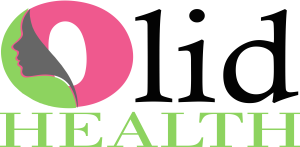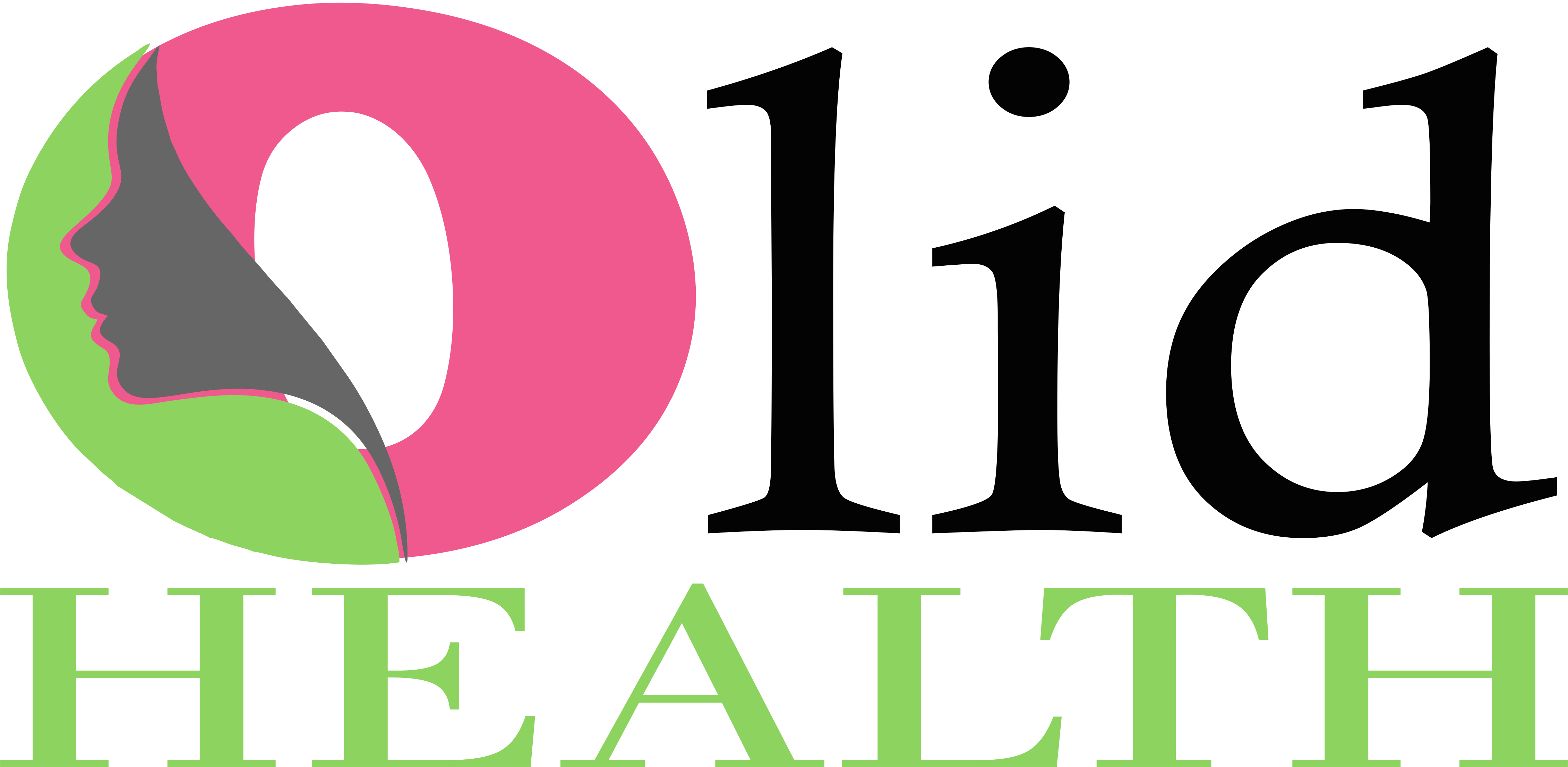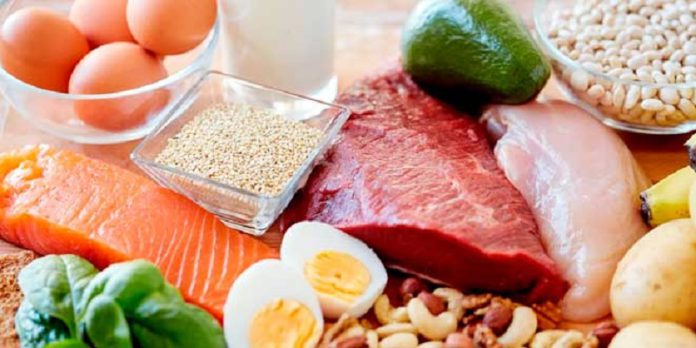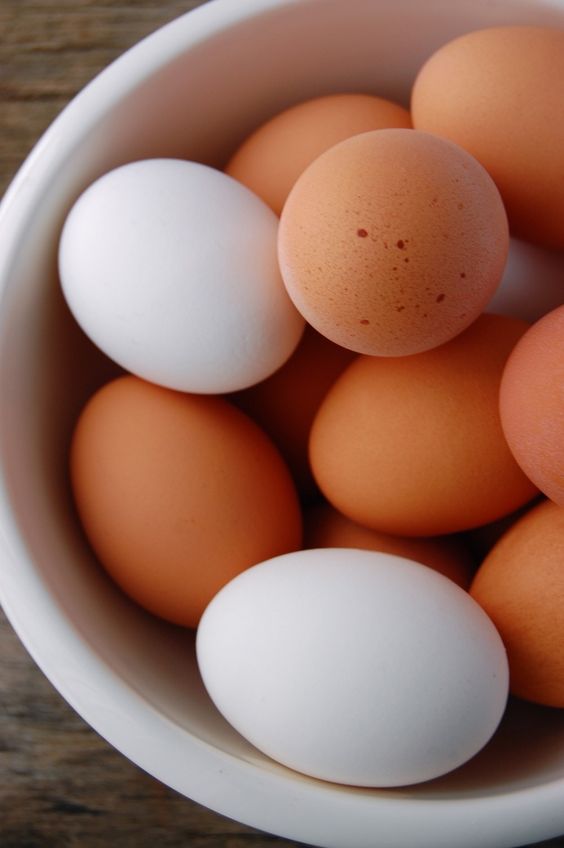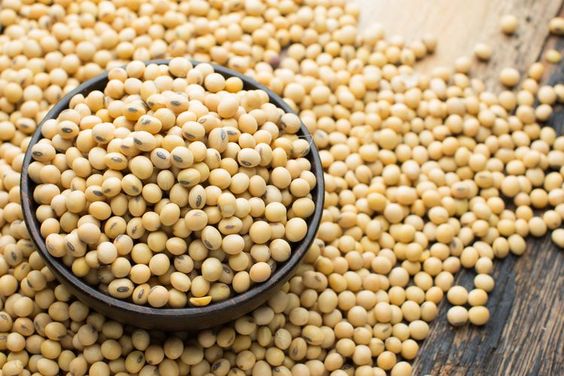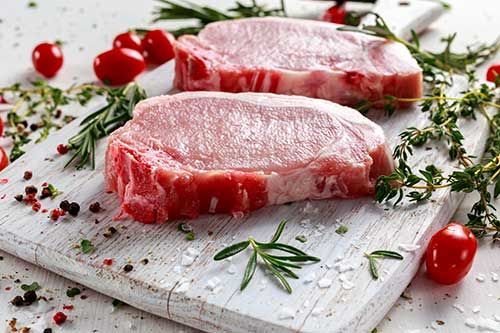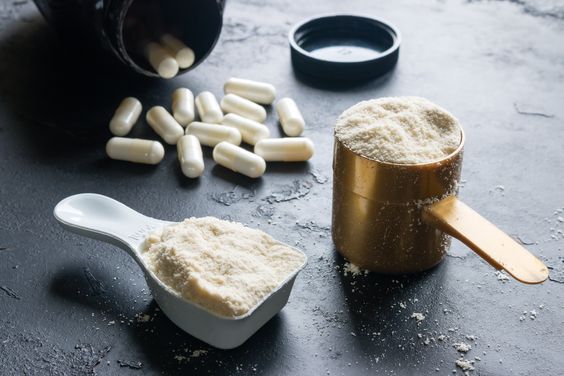Olidhealth.com – Have you ever wondered what is essential amino acids and their function in our body? Well, it’s a crucial question that is hardly explained for commonfolk. However, we unconsciously consume foods with these amino acids include meat and eggs.
To figure out the function of essential amino acids in an easier way, we can imagine a house with many bricks. These bricks act as the foundation and wall of the house. If there are missing parts of brick, the house started to crumble and eventually collapse. The same goes for these amino acids do to our body. We really need these substances to maintain the body’s function properly. That’s why essential amino acid is called the building block of life. In addition, essential amino acids can’t be produced alone in our bodies, and eating food is the only way to obtain that.
The deficiency of essential amino acids case rarely occurs in normal circumstances. However, it could be a problematic case for people with particular conditions since it barely has a specific symptom. Knowing each of the 9 essential amino acids functions and its food source may help you to prevent your body from collapsing. We overview each of these amino acids as beneficial information to keep your body stay healthy.
Methionine – The Detoxification Expert
Generally, methionine is 1 of 9 essential amino acids that have benefits to building the body. For instance, it contains sulfur in side-chain carbon that plays an important role to make protein. This amino acid can be served as a precursor to produce other amino acids such as carnitine and cysteine. Carnitine has a role to convert fat into energy, while cysteine is good for skin and hair health care.
Other functions of methionine such as defend cells against malicious substances (contribute as antioxidant agent), promoting skin health, contributing to mineral absorption within the gut, breaking down excess fat in the liver, and inducing specific enzyme production to reduce bad cholesterol [1]. Based on research in 2013, methionine supplements could decrease the risk of colon cancer [2].
Commonly, essential amino acids exist in meat and eggs. Methionine is plentiful in eggs, especially in the white part of eggs. However, there is also other methionine-rich food such as:
- Poultry (white eggs, whole eggs, turkey, and chicken broiler)
- Seafood (seaweed, whelk, clam, shrimp, and lobster)
- Red meat (beef and pork)
- Game meat (lamb, veal, and rabbit)
- Fish (tuna, grouper, salmon, tilapia, cod, and snapper)
- Diary product (milk and low-fat cheese)
- Nuts and seeds (brazil nuts, white beans, quinoa, sesame seeds, and pumpkin seeds)
- Soy product (tofu and tempeh)
- Vegetables (sweet potatoes, mushroom, spinach, pepper, and shallot)
- Fruit ( peach, apricot, and goji berries)
- Supplement for a limited purpose (need doctor’s prescription)
Methionine Deficiency
It’s rare to find people with a lack of methionine. Some people who have less meat and eggs intake such as vegan could have these conditions but it does not have a bad effect causing harmful conditions. Even some nutritionists suggest lowering the intake of protein could have health benefits to limit cancer aggression, but it is still a questionable assumption.
On the contrary, too much consuming methionine-rich food, especially in supplement form could be bad for our health. Methionine contains sulfur in its side-chain carbon that could be toxic. Excessively of this amino acid type is more likely to have the same symptom like sulfur toxicity such as nausea, dizziness, vomiting, low blood pressure, and gastrointestinal illness in worse cases.
On the other hand, patients who have abnormal syndrome such as hypermethioninemia also could disturb methionine levels or even have methionine deficiency in their bodies. This condition makes the body can’t metabolism methionine properly and can cause buildup that bad if don’t be treated soon [3].
In the first place, this syndrome doesn’t have any recognized symptoms. As time goes on, untreated hypermethioninemia could lead to the worst case. The symptom of high methionine levels in this syndrome such as weakness, motor skill problems, unusual urine smelling, and liver disorder. Individuals with hypermethioninemia can be caused fo some reason like genetic from their family or specific enzyme shortage like methionine adenosyltransferase. In this case, early detection is needed to prevent other complications caused by this condition.
Phenylalanine – The Precursor of ‘Happy’ hormone
Feeling happy in some situations doesn’t mean it is caused just by our actions. There are hormones such as dopamine to make us feel like that. The number of these hormones can be affected by phenylalanine. This amino acid serves as a precursor to making this ‘happy’ hormone. Besides that, it also contributes to making tyrosine, a conditionally essential amino acid to produce thyroid hormone and help several enzyme productions.
Is that the only thing phenylalanine can do? of course not. Adequate phenylalanine in the body can help in pigment melanin production, improve brain function, and promote logical thinker since it could affect adrenaline in critical situations. Some studies also found that phenylalanine supplements could treat various diseases such as rheumatoid arthritis, osteoarthritis, vitiligo, and nerve-related disorder like depression and attention deficit-hyperactivity disorder (ADHD).
To meet protein needs especially phenylalanine, we should know the best food that contains that amino acid. Commonly, food like meat and eggs are the highest protein content. However, other food also contains phenylalanine. We arrange phenylalanine-rich food from upper to bottom as follows:
- Meat (lamb, ham, pork, and beef)
- Poultry (eggs, chicken, turkey, and goose)
- Soy product (tofu and tempeh)
- Seafood (seaweed, crab, shrimp, and lobster)
- Fish (bluefin tuna, cod, yellowfin tuna, grouper, sardine, salmon, and tilapia)
- Wheat (Khorasan wheat, buckwheat, oatmeal)
- Nut and seed (edamame, hemp seeds, peanut, lima beans, and sunflower seeds)
- Diary product (whole milk, soy milk, low-fat milk, yogurt, and cheese)
- Vegetable (potatoes, asparagus, broccoli, spinach, and kale)
- Fruit (avocado, grapefruit, jackfruit, apricot, kiwi, and dates)
- Supplement for specific protein content
Phenylalanine Deficiency
If we talk about the deficiency of phenylalanine, the possibility is so small since the diet that we consume contains this amino acid. However, some studies found that we could have the risk of phenylalanine deficiency syndrome. The symptom of low phenylalanine level in our blood includes depression and vitiligo.
In other cases, people with phenylketonuria are prone to have higher phenylalanine because their bodies lack a specific enzyme called phenylalanine hydroxylase to break down phenylalanine. High phenylalanine levels in the blood could lead to serious cases such as seizures, low density of bone, brain damage, behavioral change, and other nerve-related diseases. To treat this disorder, limit intake of phenylalanine-rich food and check regularly with the doctor since it could be a serious problem.
Threonine – The Collagen Support
Threonine is the key to promoting elasticity within the skin since it can produce elastin compounds. This amino acid also has the main function is to make collagen and connecting tissue muscle. Moreover, It also contributes to speeding up the healing process. All thanks to threonine that can produce specific amino acids such as glycine and serine for these skin-related benefits. In addition, Glycine function is related to skin and tissue health while serine function is related to neurological health.
Another benefit of threonine is helping minerals to strengthen the bone and teeth, especially in the enamel layer. Studies in 2019 found that threonine may induce better sleep if consume threonine-rich food regularly. Threonine supplements also could treat patients with Lou Gehrig’s disease since collagen can improve spasticity in muscle. However, this claim still needs further research about its effect to reduce this disease symptom.
Foods That Contain Threonine
- Poultry (turkey, chicken, and quail)
- Vegetables (watercress, asparagus, spinach, brussel sprout, and cabbage)
- Red meat (beef, pork, and lamb)
- Fish (tilapia, tuna, cod, perch, pollock, and grouper)
- Nuts and seeds (soybeans, peanut, flaxseed, hemp seeds, and sunflower seeds)
- Fruit (avocado, dates, and kiwi)
- Supplement
Threonine Deficiency
It’s almost strange enough if there are people who lack threonine because it is usually present in our meals. However, an unbalanced diet and vegan may have this condition. The symptom of threonine deficiency include gastrointestinal problems, increase fatty acid within the liver, decreased nutrition absorption, dazedness, and mental disorder.
In another case, if too much threonine in the body caused by excessive supplement intake can lead to a bigger problem. Overdose of threonine supplement may have symptoms such as nausea, headache, and stomach upset.
Lysine – The Helper Protein Synthesis
Lysine is the one of ‘building block’ proteins that makes your body stay healthy. For instance, Lysine is a precursor to carnitine besides methionine. The function of carnitine is to transform fatty acid into energy and offer it to other cells in need. In muscle regulation, lysine could be used to improve muscle growth since it can be converted to collagen and promote ligament and tendon health. Lysine also may contribute to preventing premature aging in the skin.
Other possible benefits of lysine are reducing high blood pressure, supporting calcium absorption, and strengthening the bone. Studies suggest that lysine could also improve the immune system and have the potential effect to reduce cold sore since this disease is caused by the herpes virus.
In neurological cases, lysine may have the benefit to treat anxiety. Based to the expert, lysine combined with arginine could scale down cortisol levels produced when the body is stressed. lysine also has the possibility to lessen schizophrenia disorder.
All of those benefits are proof that lysine is important to our body. Regularly lysine intake is needed to maintain body health. The foods that contain lysine are as follow:
- Red meat (beef, veal, and pork)
- Game meat (rabbit, deer, bison, lamb, moose, and caribou)
- Seafood (cuttlefish, whelk, octopus, crab, shrimp, and clam)
- Fish (sturgeon, cod, tuna, anchovy, mackerel, salmon, and trout)
- Poultry (broiler, turkey, and duck)
- Dairy products (eggs, milk, yogurt, soy milk, and cheese)
- Nuts and seeds (pumpkin seeds, squash seeds, sunflower seeds, and soybeans)
- Fruit (tamarine, apricot, avocado, and mango)
- Vegetables (parsley, spinach, broccoli, mushroom, cauliflower, potato, and asparagus)
- Supplement mixed with other protein
Lysine Deficiency
Vegan and people who have an imbalanced diet may lack lysine since the main source of lysine is red meat and seafood. Lysine deficiency could weaken organ function such as kidneys and stomach. The symptom of low lysine level in your body includes nausea, irritability, hair loss, redness in the eye, fatigue, dazedness, anemia, and vulnerability to have a reproductive disorder.
In specific cases, hyperlysinemia is known to cause lysine deficiency. The body lack enzyme that can break down lysine which leads to the build-up of excess lysine within the blood. Although this case is rare, it’s still harmful if don’t take it seriously. People with this condition probably come down with an intellectual disability and mood problem.
Histidine – The Multipurpose Protein Precursor
Histidine is required in some protein synthesis to maintain the body’s function. For example, histidine has a role in making blood cells and contributes to repairing damaged tissue. Moreover, this amino acid is also the precursor for histamine that has the benefit to manage the immune system and has a fast response to protect the cell against free radicals. Furthermore, the other purpose of histamine is a neurotransmitter to control positive thoughts such as motivation, arousal, and appetite feeling.
Histidine also contributes to the digestive system because it can produce an enzyme called trypsin to break down protein within the small intestine. Furthermore, Based on some studies suggest that histidine also has benefits to treat dermatitis or eczema. This claim is proven since excess histidine are stored in the skin and could convert ultraviolet radiation into an enzyme that can protect the skin cell. Carnosine also could be made by histidine that has contributed as an antioxidant agent and buffers to protect and maintain acidity in muscle.
Although its have myriad benefit for our health, consuming histidine-rich food should be at a rational amount. For your information, women in pregnancy should not consume histidine supplements since they can affect the fetus. Food that contains histidine are shown below:
- Game meat (deer, antelope, moose, or elk)
- Red meat (pork, ham, veal, and buffalo)
- Poultry (broiler, pheasant, quail, turkey)
- Fish (cod, tuna, haddock, grouper, and pout)
- Dairy products (eggs, milk, cheese, and yogurt)
- Nuts and seeds (lima beans, lentils, peas, soybeans, and kidney beans)
- Vegetables (kale, okra, cauliflower, spinach, zucchini, and broccoli)
- Fruit (banana, avocado, sapodilla, and apricot)
Histidine Deficiency
Neurotransmitters in the brain could be affected if the body has histidine Deficiency. It could lead to mood disorders and other neuro-related illnesses. Lack of histidine is also linked to folic acid deficiency. Moreover, this condition may lead to rheumatoid arthritis and kidney failure. Low histidine levels can be caused by a digestive disorder or a small intake of histidine food in daily meals.
In some cases, a high histidine level in blood could be occur caused by a rare condition such as histidinemia. The body can’t break down histidine because of the lack of certain enzymes and inflating histidine concentration. Excess histidine causes no harm to the body and people who have it are almost unaware of this condition. However, complications caused by histidinemia might lead to neurological disorders such as impaired learning processes and logical functions.
Tryptophan – The Sleep Inducer
This essential amino acid is mainly used to produce hormones that affect our moods such as serotonin, melatonin, and tryptamine. Serotonin is a ‘mood’ hormone that affects the behavior of each person including sleep, mood, appetite, and pain. On other hand, melatonin and tryptamine are used to control the sleep cycle and make hallucinations sensation.
Besides its use to control mood, tryptophan also has an important role in the liver to produce niacin (vitamin B3) which helps compose DNA and aid the metabolism system. Moreover, tryptophan also contributes to kynurenine synthesis which is used as a protector within the eyes against ultraviolet radiation.
In additional information, the amount of tryptophan needed in the body is smallest than other amino acids. However, we still need enough of this protein to maintain our bodies. The one of highest tryptophan content food is turkey and poultry. Other foods that also contain tryptophan are as follow:
- Poultry (eggs, quail, duck, turkey, chicken, and pheasant)
- Seafood (seaweed, crab, lobster, crayfish, and shrimp)
- Dairy products (milk, soy milk, cheese, and yogurt)
- Game meat (elk, caribou, lamb, horse, and rabbit)
- Red meat (pork and goat)
- Fish (salmon, halibut, cod, tuna, perch, and burbot)
- Nuts and seeds (soybeans, sesame seeds, sunflower seeds, peas, and kidney beans)
- Vegetables (watercress, broccoli, parsley, turnip, mushrooms, kale, and spinach)
- Fruit (mamey sapote, kiwi, and avocado)
Tryptophan deficiency
Lack of tryptophan could have a huge effect on hormone production. Based on some research, low serotonin levels could lead to negative thoughts and sleep disorders. Acute deficiency of tryptophan is also linked to abnormal behavior, increase pain sensitivity, and impaired motor activity since these amino acids are essential as neurotransmitters and ‘mood’ hormone formation.
Furthermore, low intake of tryptophan can disturb growth rates and lead to irregular skeletal development. For example in some research, an animal with low tryptophan has shown decline growth rates in some aspects.
On the contrary, too much tryptophan could lead to serious problems. Excess tryptophan could develop various disorders such as serotonin disorder, impaired muscle, lung disease, and affect fatty acid formation within the liver.
Branched-chain Amino Acid
The last 3 components of 9 essential amino acids are compiled in this segment. Leucine, isoleucine, and valine are known as branched-chain amino acids (BCAA) since they have an aliphatic side chain. If you are gym junkies and usually work out, these three amino acids are familiar to you since they are recognized as protein supplements.
Valine – The Muscle Builder
Valine is one of three pillars of BCAA and is a popular supplement for bodybuilders. This amino acid plays a part in muscle regeneration and improves repairability in damaged muscle. It also contributes as ‘mitochondria’ that mean a powerhouse within the muscle. Valine also could induce muscle growth that is beneficial for bodybuilders.
There are also have other benefits of valine besides its function as a muscle builder such as improving liver health and maintaining blood sugar. Studies suggest that valine could treat people with phenylketonuria, a disorder that has impaired the metabolism of phenylalanine. Valine also could treat neurological disorders such as tardive dyskinesia.
Leucine – Essential Workout Protein
Leucine is also one of the important supplements for athletes because it can enhance muscle strength and immediately repair muscle from over stretches called ‘microtear’. Athletes are prone to have sore muscles since they have heavy workouts.
On the other hand, leucine plays an important role to maintain blood sugar levels. This beneficial amino acid also can boost wounds healing in the skin caused by external damage. Furthermore, Leucine is also essential in healing internal damage such as bone fracture and muscle. Based on some research, infants should have enough leucine or total branched-chain amino acids to improve their growth rate. Leucine also takes part to stimulate growth hormone besides vitamin and essential minerals such as calcium.
If you want to lose weight, leucine has a unique effect to reduce that. Although leucine consumption can gain mass muscle, some studies believe exercising and consuming leucine could selectively reduce useless fat and maintain other necessary fat within the muscle.
Isoleucine – The Energy Booster
Isoleucine is the last member of branched-chain amino acid and relatively has the same benefit as other BCAA. Every muscle has isoleucine content as an energy conservator and mostly found in muscle tissue especially in dense parts within the muscle. In scientific terms, isoleucine can generate energy via glucogenic ways like valine and ketogenic way like leucine. In other words, isoleucine can do better to boost energy in the body. As part of a protein supplement for athletes, it also helps promote muscle growth and improve metabolism related to muscle.
Furthermore, isoleucine also plays an important role to make hemoglobin and contributes to supporting the immune system. Moreover, the crucial metabolism in fatty acid, glucose, and various protein need isoleucine as a precursor in their production.
Food Contains High in Branched-chain Amino Acid
Though valine, leucine, and isoleucine can be found in popular protein powder and supplements, other food sources are also good for you to balance your diet. These typical amino acids are usually combined in the same food. The following foods contain these amino acids such as:
- Meat (beef, pork, lamb, and red meat)
- Seafood (tuna, salmon, tilapia, cod, and seaweed)
- Poultry product (eggs and chicken)
- Diary product (cheese, milk, and yogurt)
- Nuts and legumes (navy beans, pistachio nuts, kidney beans, soy and soy product)
- Seeds (pumpkin seeds, alfalfa seeds, hemp seeds, and flax seeds)
- Whole grains (oatmeal and buckwheat)
- Vegetables (mushroom, spinach, potatoes, beetroot, carrot, tomatoes, cauliflower, etc)
- Fruit (avocado, jackfruit, guava, and kiwi)
- BCAA Supplement
In additional information, if you take the supplement for protein booster, we recommend consuming the whole 9 essential amino acid supplements. Some people suggest that taking branched-chain amino acid supplement only for bodybuilder are less beneficial than taking the whole essential amino acid supplement. The reason is other 6 amino acids also have contributed to the entire possess in the body.
Just taking amino acids for boosting muscle could lead to an imbalance of amino acid levels in the body or worse case could lead to malnutrition and anomaly muscle growth.
Side Effect and Deficiency of Branched-chain Amino Acid
BCAA is good in fair consumption but in some cases, we are not aware of the amount of BCAA we have in our bodies. Athletes and bodybuilders are regular consumers of this supplement but that doesn’t mean it is safe for everyone. The general side effect of consuming valine, leucine, and isoleucine supplements such as stomach bloating, fatigue, nausea, vomiting, diarrhea, and confusion. However, excessive BCAA can lead to several diseases such as neurological disorders and increase the risk of heart illness. The rare symptom caused by consuming these amino acids also could rising blood sugar levels.
Deficiency of BCAA also occurs if have poor protein consumption or in older ages. Decreasing protein formation caused by lack of BCAA could lead to various disorders and even mutation in some cases. Moreover, older people usually have less intake of protein, especially leucine and isoleucine. The symptom that could occur in these people such as tremors and weakened muscles.
People with rare metabolism disorders are also prone to have imbalanced protein. For example, maple syrup urine disease is an inherited disorder that the body that can’t process branched-chain amino acids, especially in leucine. Buildup unprocessed leucine could be fatal and lead to seizures and even coma. To detect these diseases in babies can be observed with sweet-scent in the urine.
Specific Single Branched-chain Amino Acid deficiency
There is also a specific case deficiency on a single component of BCAA that could happen if individuals don’t have a balanced meal. For instance, a low leucine level in the body can decline growth, lack of appetite, abnormal weight loss, weakness, or even hair loss in mild cases.
As for valine deficiency, a rare disease called valinemia that the body can’t metabolism valine properly. Lack of a specific enzyme called valine transaminase is the main cause of this condition and excess valine could build up within the bloodstream. The symptom of valinemia such as drowsiness, irregular muscle formation, and hyperactivity. Too much valine is also bad at a certain level since valine is related to ammonia that could be toxic. Excessive ammonia also affects kidney and liver function.
We recommend visiting your doctor to make sure you can consume BCAA or not. The possible harmful conditions might be detected by experts since we are not aware of their symptoms. It is not late to confirm the status of your health and eat an appropriate meal to maintain your health.
Brief Information About Amino Acids
For your information, Amino acids are precursors of various proteins that should be fulfilled in the body. Types of amino acids are classified depending on their uses and capability of the body to make these amino acids alone. There are types of amino acids as follows:
- Essential amino acids – The crucial items that the body can’t make and we need enough intake from diet.
- Conditionally essential amino acids – The substance that is needed in some cases of deficiency and important in early growth for adolescents.
- Non-essential amino acids – This amino acids group can be called dispensable amino acids since the body can make this amino acid from essential amino acids.
Conclusion
Essential amino acids are important substance that builds our body and keep our body stay healthy. The functions of each this amino acid are immensely broad across the body and exist in mostly metabolism systems as a precursor of various proteins, enzymes, and hormones. We can find food high in essential amino acids almost everywhere, especially meat, eggs, dairy, and seafood. It also has a supplement form to replenish our nutrition needs easily.
Although its have benefit for our health, information about side effect and deficiency of essential amino acid is also important to prevent the risk of a certain disorder. Some of them are mild and severe cases that may be threatening our life if don’t take them seriously. So, learning its deficiency and consuming a reasonable amount of healthy food could be a key to maintaining our health.
Reference
[1] https://www.ncbi.nlm.nih.gov/pmc/articles/PMC6446232/ – Methionine function within the body
[2] https://journals.plos.org/plosone/article?id=10.1371/journal.pone.0083588 – Methionine study for colon cancer reduction
[3] https://www.ncbi.nlm.nih.gov/pmc/articles/PMC5203850/ – Hypermethioninemia diagnosis and treatment
